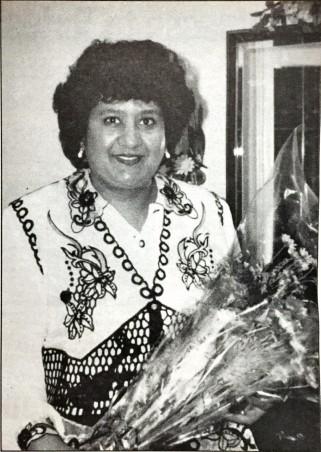By Andy Lloyd
The scene was too much for Shirley Alvares to witness: A husband who just lost his child during birth is forced into a crowded hospital hallway to mourn.
Eventually, the veteran obstetrical nurse at Brampton’s William Osler Health Centre and Ryerson student created a “Bereavement Room,” which gave grieving parents a private place to be alone.
The innovative room also secured Alvares a nomination for the Toronto Star Nightingale Award, which recognizes excellence among Ontario’s 108,000 nurses.
Alvares decided to take action and suggested the hospital concert a housekeeping lounge into a bereavement room.
“You just have to be persistent. I had to show the hospital how badly we needed this space,” says Alvares. “I set up a fundraising committee. We got unbelievable support from the hospital staff and the community. People donated items and money for the room.”
With the help of her coworkers, Alvares completed the room, which includes a phone, a coffeemaker, a bed, infant clothing and a bassinet for deceased newborns.
“We also keep a journal in the room. Parents write down their feeling and thoughts. It’s a place where a family can say goodbye to their baby, or to pray, or to spend quiet time together grieving.”
The bereavement room has been a hit, causing hospitals in North York and Etobicoke to consider setting up similar rooms.
Alvares received the Osler Health Centre Excellence in Nursing Leadership Award in 2000, recognizing her dedication to the hospital. She also organizes the hospital’s annual perinatal Bereavement Conference and sits on their Nursing Advisory Committee.
Several years ago Alvares decided to continue her education at Ryerson. Despite 25 years of work experience, she was terrified to go back to school.
“I wanted to improve my depth of knowledge and awareness of nursing,” says Alvares, who works 12-hour shifts at the hospital and spends one day a week at Ryerson. “When you’ve been in a field for so long, you think you know everything. At Ryerson I’ve learned how much I don’t know and it surprised me.”
She hopes to complete her baccalaureate by next year.
Ruth Wojtiuk manages Ryerson’s continuing education nursing program and sees the bereavement room as a perfect example of putting theory into practice.
“Shirley identified the need for a bereavement room, developed a plan, and saw it through to the end. It’s remarkable that she was able to achieve this despite a lack of funding and available space. I think her incredible passion and initiative for the project were key to its success,” says Wojtiuk.
“If you’re ill, this is who you want to take care of you.”
To Alvares, the bereavement room is part of a life dedicated to the nursing profession. She grew up in Montreal, the eldest of seven children. At an early age Alvares took an interest in nursing.
“I watched the Vietnam War on TV and I just wanted to help the soldiers. I wanted to be an army nurse.”
By the time she earned her diploma in nursing from Montreal’s Dawson College, the war was over. Instead, she took a job at the Royal Victoria Hospital and later one in Regina.
After only a year, Alvares left Regina to join her fiancé on Calgary. She spent 10 years at Foothills Hospital mainly working in the Gyne-oncology department.
During this period Alvares dealt with death on a daily basis.
“You deal with it like any other person would. You grieve with the family. I can’t detach myself from death, there’s a real bond between nurses and their patients.”
In 1989 Alvares’ husband lost his job in the oil industry and moved to Ontario.
Alvares took a job at Brampton Memorial Hospital, now the William Osler Centre. In Ontario she started working in obstetrics and then moved on to labour and delivery.
“It’s very different from oncology. In labour and delivery you form intense relationships with patients, but for a very short period. Cancer treatment can be very lengthy.”
Alvares recalls one bittersweet delivery.
“We weren’t expecting any complications with this birth, everything was normal. But at the last minute the doctor couldn’t find the baby’s heartbeat. We had to rush her to the operating room for an emergency delivery. The baby was born without a heartbeat and needed resuscitation.”
Alvares remembers how quick and chaotic everything happened that day.
“The mother grabbed my arm, looked into my eyes and asked, ‘Is my baby alright?’ I was speechless. All I could say was ‘your baby is very sick.’”
The child was resuscitated but it was clear that it wouldn’t survive. Alvares and her coworkers quickly had the baby baptized and allowed the parents to be with the child before it died a few short hours later.
“Afterwards I asked the mother if she was glad that we resuscitated the baby. She told me it meant a great deal to her to know that the baby was alive, even if for only a short time, and she cherished the few hours she was able to spend with the child.”
It’s moments like these that give Alvares the strength to do what she does.
“I’ll never give it up.”












Leave a Reply